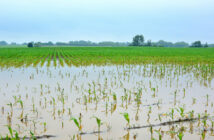Huge untapped potential still exists in the rural sector for farmers and landowners to diversify, according to land and property specialists Strutt & Parker.
Ed Mansel Lewis, head of Strutt & Parker’s specialist diversification team Rural Ambitions, says: “Diversification is not a new trend, but the rural sector has only scratched the surface of possibility when it comes to introducing diversified enterprises.
“Farm Business Survey data for England shows that 68% of farms had some sort of diversified activity in 2019/20, up from 65% in 2018/19. However, this figure drops to below 50% when the letting of buildings for non-agricultural use – the main diversified activity that landowners tend to have – is excluded. This highlights that to date only a relatively small proportion of businesses have introduced customer-facing enterprises.
“This suggests there is still huge potential for farms and estates to develop new innovative businesses alongside their core business – spanning the tourism, hospitality, food processing, leisure, wellbeing and retail sectors.
“Of course, diversification will not be an option for everyone, but at a time of huge change within the rural sector it could prove to be an important source of additional income for those that can.”
Mr Mansel Lewis says what these businesses might be will vary according to a farm or estate’s asset base, the owner’s aspirations, the location and the unmet needs within local communities.
“For example, the COVID-19 pandemic has highlighted that people who don’t have green spaces on their doorstep are desperate to access it. This presents tremendous opportunities for land-based businesses to use their beautiful outdoor spaces as a vehicle to draw customers in and support the sales of other products and services.
“Similarly, it is anticipated that after COVID-19 there is likely to be a much greater focus on public health, which could be another opportunity for landowners, given research proves that access to the countryside is beneficial for health and wellbeing,” he says.
“Alternatively, while people have generally embraced the shift to homeworking, the novelty has started to wear off for some who would prefer a mix of working from an office and remotely. This means there could be a growing appetite for shared office space or serviced offices in rural locations.
“The environmental agenda is also opening the door to new customer-facing businesses – with consumers increasingly seeking guilt-free experiences with a low carbon-footprint.
“The good news for farms and estates is that they have plenty to offer that society wants and the key to the future is working out how best to harness that demand.”
Mr Mansel Lewis says for those with the right entrepreneurial skills, diversification could involve the launch of their own in-hand businesses – but this is not the only option.
“Indeed, for many landowners it could be better to invite others who share their values to work alongside them as trading partners or tenants. This can help people avoid the pitfall of spreading themselves too thinly across their core business.
“Central to the success of any new enterprises will be thinking about how to create a ‘destination’. This is the art of ‘placemaking’ – a process based on the premise that in order to create new, profitable and diverse businesses you need to invest in the attraction and desirability of the location where they are based. At its simplest, it is about creating a location in which people are more likely to want to live, work and spend their leisure time and money. Traditionally, many farm and estate owners approach diversification on a one-off building or project basis, rather than stepping back and considering the customer experience.”
Strutt & Parker has just published a report on The Future of the Estate which examines where there might be opportunities for rural estates to generate new income streams and the role of placemaking in creating successful diversified businesses.
Rural Ambitions provides entrepreneurial consultancy advice to help farms and rural estates develop successful customer-facing places in the rural landscape.




